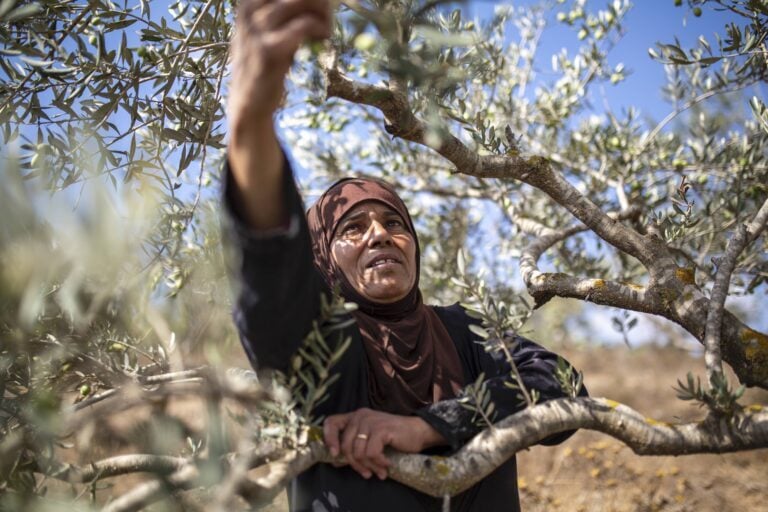Palestinian farmers in the occupied West Bank face economic devastation as a surge in violence by illegal Israeli settlers and the Israeli military prevents them from harvesting their olives. Around 100,000 Palestinian families are estimated to rely on these trees as a source of income.
The start of the war in Gaza coincided with the autumn olive harvest, but the Israeli military has cut off West Bank farmers’ access to their orchards, while reportedly allowing illegal settlers in to steal the olives and destroy the trees.
Yet despite the settler attacks and restrictions on the olive harvest, Palestinian farmers are determined to remain steadfast and help each other harvest as much as possible before the nearing end of the season. With its long history of rootedness in the land, the olive tree is often seen as one of the most evocative symbols of resilience, and representative of a generational bond with the land.
According to a spokesperson for the Israeli military, the restrictions faced by farmers are part of “security operations” in the area aimed at capturing militant groups and protecting Israeli settlers who claim the land, in violation of international law.



Reminder that the West Bank is not Gaza and is not controlled by Hamas, if one attempts the argument of invoking October 7 as justification for this.